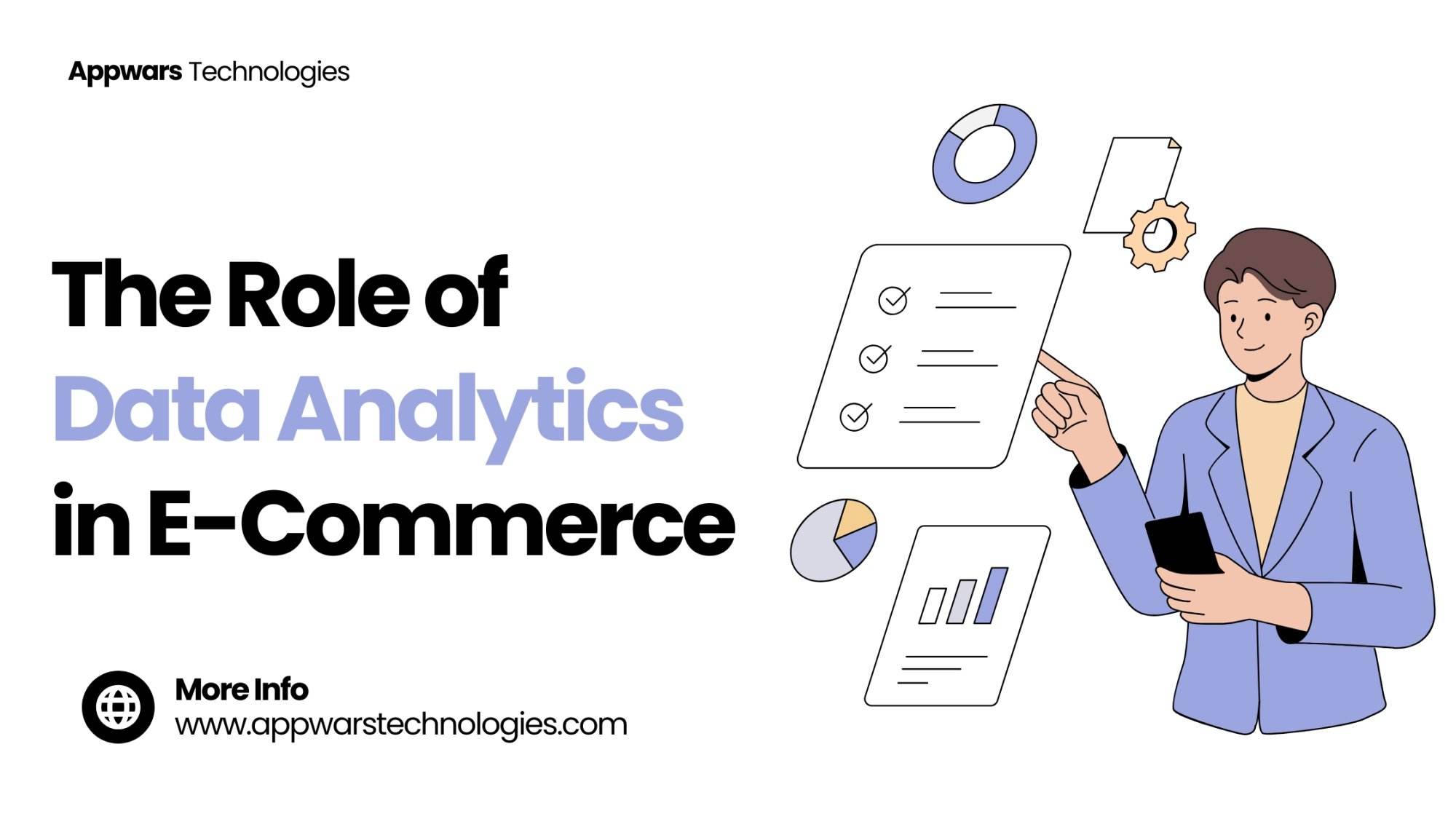In today’s digital era, data analytics has become the backbone of e-commerce businesses. The rapid growth of online shopping has led to a vast amount of consumer data being generated every second. Harnessing this data effectively can provide e-commerce companies with actionable insights to improve their operations, enhance customer experiences, and gain a competitive edge. This blog delves into the multifaceted role of data analytics in e-commerce, exploring how it drives growth and innovation.
Understanding Data Analytics in E-Commerce
Data analytics involves collecting, processing, and analyzing data to uncover patterns, trends, and insights. In the e-commerce sector, data analytics encompasses various types, including descriptive analytics (what happened), predictive analytics (what will happen), and prescriptive analytics (what actions to take). By leveraging these types of analytics, businesses can make informed decisions to optimize processes and drive results.
Personalized Customer Experiences
One of the most significant impacts of data analytics in e-commerce is its ability to personalize customer experiences. By analyzing browsing history, purchase patterns, and customer preferences, businesses can deliver tailored recommendations and offers. For instance, Amazon’s recommendation engine, powered by data analytics, contributes significantly to its sales by suggesting products customers will likely buy.
Personalization extends beyond recommendations to customized email campaigns, dynamic pricing, and targeted advertisements. These efforts increase customer satisfaction and improve conversion rates, turning casual browsers into loyal customers.
Inventory Management and Supply Chain Optimization
Efficient inventory management is critical for e-commerce businesses to meet customer demand while minimizing storage costs. Data analytics enables real-time tracking of inventory levels, identifying high-demand products, and predicting future trends. Predictive analytics can forecast demand spikes during holiday seasons or sales events, ensuring businesses are prepared.
Additionally, data analytics optimizes supply chain operations by identifying bottlenecks, reducing delivery times, and minimizing shipping costs. Companies like Walmart and Alibaba have leveraged data analytics to streamline their logistics, ensuring faster and more reliable order fulfilment.
Enhancing Marketing Strategies
E-commerce businesses invest heavily in digital marketing to attract and retain customers. Data analytics provides insights into which campaigns are performing well, what channels drive the most traffic, and how customers engage with content. Tools like Google Analytics and Heatmaps offer detailed metrics to refine marketing strategies.
Moreover, advanced analytics such as sentiment analysis helps businesses understand customer emotions and feedback. By monitoring social media trends and reviews, companies can adjust their messaging and products to align with customer expectations.
Fraud Detection and Prevention
The rise of online transactions has also increased the risk of fraud in e-commerce. Data analytics plays a crucial role in identifying fraudulent activities by detecting anomalies in transaction patterns. Machine learning algorithms can flag suspicious behaviours, such as unusually large purchases or repeated failed login attempts, helping businesses mitigate risks.
Payment gateways and e-commerce platforms employ predictive analytics to enhance security, ensuring a safe shopping environment for customers. Companies like PayPal and Stripe use sophisticated data models to protect both buyers and sellers from potential threats.
Pricing Strategies
Dynamic pricing, enabled by data analytics, allows e-commerce businesses to adjust prices based on demand, competition, and other market factors. By analyzing historical data, businesses can determine the optimal price points to maximize revenue and maintain competitiveness.
For example, airlines and hotel booking platforms rely heavily on dynamic pricing to capitalize on peak demand periods. Similarly, e-commerce giants use data-driven pricing strategies to attract more customers during sales or clearance events.
Customer Retention and Lifetime Value
Customer retention is more cost-effective than acquiring new customers. Data analytics helps e-commerce businesses identify factors that contribute to customer churn and implement strategies to enhance loyalty. By segmenting customers based on their behaviour, companies can design targeted loyalty programs, offer personalized discounts, and improve overall engagement.
Understanding customer lifetime value (CLV) is another critical application of data analytics. CLV metrics allow businesses to focus on high-value customers, ensuring resources are allocated effectively to maximize long-term profitability.
Improving Website Performance
A seamless user experience is essential for e-commerce success. Data analytics tools monitor website performance, identifying issues such as slow loading times, high bounce rates, or abandoned carts. Heatmaps and session recordings reveal how customers navigate a website, highlighting areas for improvement.
By addressing these issues promptly, businesses can enhance usability, reduce cart abandonment rates, and boost conversions. Companies like Shopify and Magento integrate analytics tools to provide actionable insights for e-commerce websites.
Leveraging Predictive Analytics for Growth
Predictive analytics uses historical data and machine learning algorithms to forecast future outcomes. In e-commerce, this technology enables businesses to predict customer behaviour, anticipate market trends, and plan for demand fluctuations.
For instance, Netflix leverages predictive analytics to recommend content to its users, increasing engagement and retention. Similarly, e-commerce platforms use predictive models to identify emerging product trends, helping them stay ahead of competitors.
Sustainability and Ethical Practices
Data analytics also plays a role in promoting sustainability and ethical practices in e-commerce. By analyzing supply chain data, businesses can identify areas to reduce waste, lower carbon footprints, and ensure fair labour practices. Customers are increasingly valuing brands that demonstrate environmental and social responsibility, making this a strategic advantage for e-commerce companies.
Challenges in Implementing Data Analytics
While data analytics offers immense potential, implementing it effectively comes with challenges. Data privacy concerns, the need for skilled professionals, and the cost of advanced tools are significant barriers. E-commerce businesses must invest in secure data management systems and comply with regulations like GDPR to address privacy issues.
Additionally, interpreting data correctly requires expertise. Many businesses struggle to derive actionable insights from the vast amount of data available. Investing in training and hiring data analytics professionals is crucial to overcoming these challenges.
The Future of Data Analytics in E-Commerce
The role of data analytics in e-commerce will continue to evolve with advancements in technology. Artificial intelligence (AI) and machine learning are expected to play a more significant role, enabling real-time decision-making and enhanced personalization. Augmented reality (AR) and virtual reality (VR) will integrate with analytics to create immersive shopping experiences.
Moreover, the rise of big data and the Internet of Things (IoT) will generate even more data, providing opportunities for deeper insights. E-commerce businesses that embrace these innovations will remain competitive in an increasingly data-driven marketplace.
Conclusion
Data analytics has revolutionized the e-commerce industry by enabling businesses to make informed decisions, enhance customer experiences, and drive growth. From personalized marketing to efficient inventory management, the applications of data analytics are vast and transformative. However, businesses must navigate challenges such as data privacy and skill shortages to fully realize their potential.
As technology continues to advance, data analytics will become even more integral to e-commerce. Companies that invest in robust analytics strategies and tools will not only thrive but also set new standards for customer satisfaction and operational efficiency. By leveraging the power of data, e-commerce businesses can unlock endless possibilities for innovation and success.












